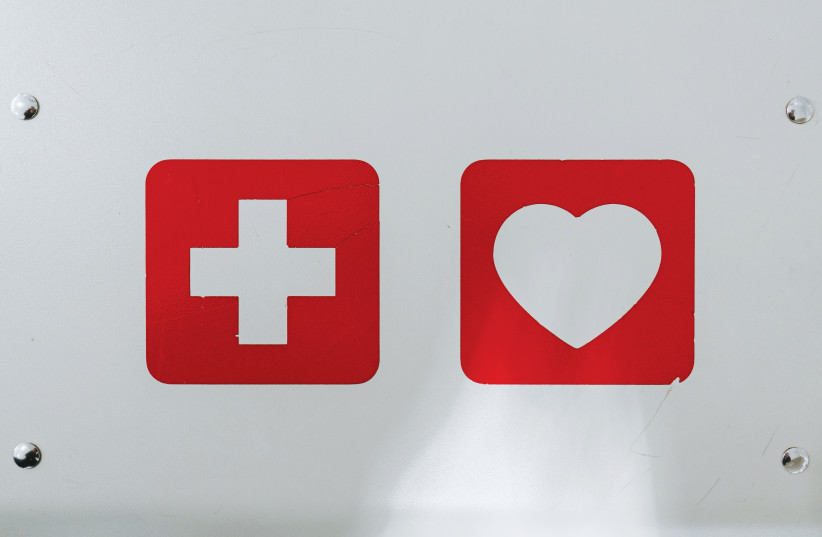There has been a significant rise in mental illness diagnoses and the use of psychiatric medicine among Israeli teenagers since the beginning of COVID-19, according to a new study conducted by Maccabi Health and the KI Institute.
There has been a 55% rise in eating disorders, a 38% rise in diagnoses of depression and a 33% rise in anxiety disorders. At the same time, the rate of prescriptions for anti-psychotic drugs has risen by 28%.
A poll conducted by the Social Workers Union shows a similar trend., adding that 44% of social workers reported a rise in suicidal behavior among teens.
The study, which was based on the medical records of over 200,000 boys and girls between the ages of 12 and 17, showed that the biggest rise was found among girls.
"This study did not examine all the psychiatric diagnoses and did not include private or ambulatory mental healthcare," said the manager of Maccabi's Medical Informatics Department Dr. Shira Greenfeld.

"The concerning results once again show that there is a national need to be prepared, not just against the pandemic, but also for its mental effects," said Head of Mental Health and Maccabi Dr. Gilad Bodenheimer.
"The results highlight the need for a budget for a national plan for the benefit of the mental state of Israel's children and teens," he said. "The plan should focus on preventative care, the cooperation between education and welfare and, of course, the health and treatment of teens and their families in the community."
"The study we conducted highlights the need to include the subject of teens' mental health in Israel as part of the discourse surrounding dealing with the COVID crisis, which can help the relevant people to focus the aid in groups who have been hit the hardest," said KI Institute Director-General Dr. Pini Akiva.
At the same time, the Social Workers Union's poll showed a rise in mental crises and a heavy load on mental healthcare facilities in Israel, resulting in lengthening waiting times.
According to reports from social workers, there has been a 93% rise in waiting times for mental healthcare since the breakout of the pandemic. Some 45% reported a wait of over a month and 25% reported a wait of more than three months.
This comes alongside a doubling of mental hospitalizations.
In terms of therapy, 20% of social workers reported a wait for patients of three-to-six months for an appointment, 41% reported six months to a year and 17% have waited more than a year.
Waiting times for healthcare for eating disorders among teens have lengthened as well with 6% of social workers reporting that they waited for appointments for more than a year.
"The coordination between the Health, Welfare, Education and Finance ministries is not working well enough right now," said Chairwoman of the Social Workers Union Inbal Hermoni. "Decisions are apparently being made according to the Excel row and considerations of saving money and not based on the real needs in the field.
"In order to prevent another worsening in the mental state of Israel's children, a plan urgently needs to be made to reduce the harm to children and teens and ensure a sequence of responses," she said: "identification of children and teens in mental crisis, initial aid, accessible treatments in the community, obliterating waiting times and a massive investment of resources."
The rise in mental health crises among teens paired with the long waiting times for care and treatment can lead to further damage and crisis. If they don't get the treatment they need, those suffering from mental illness will only get worse and may get to the point where they can no longer be saved.
